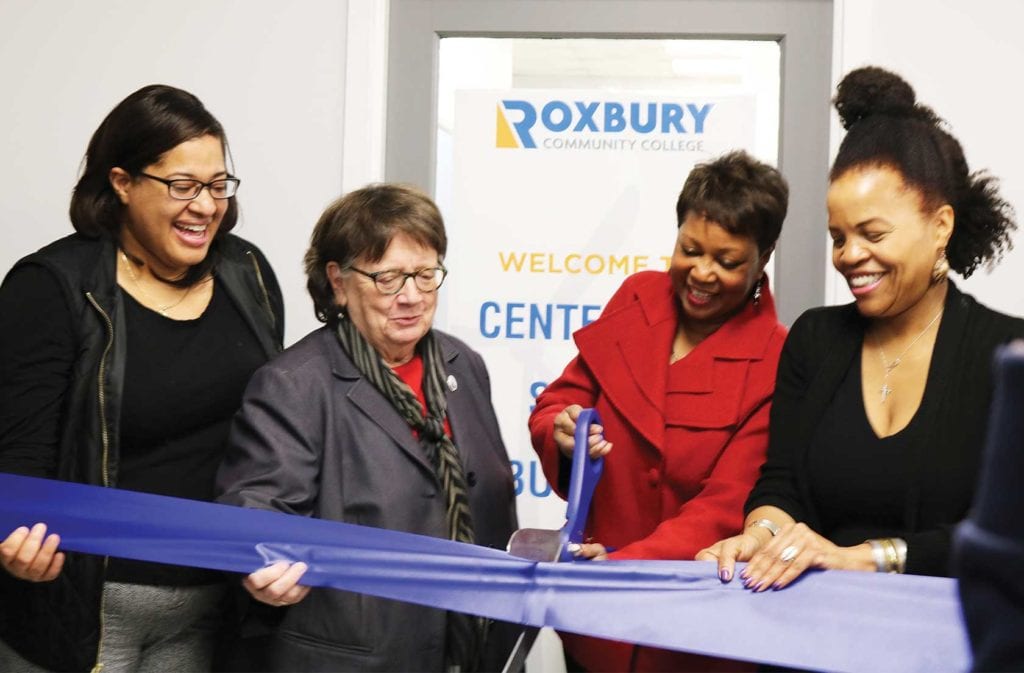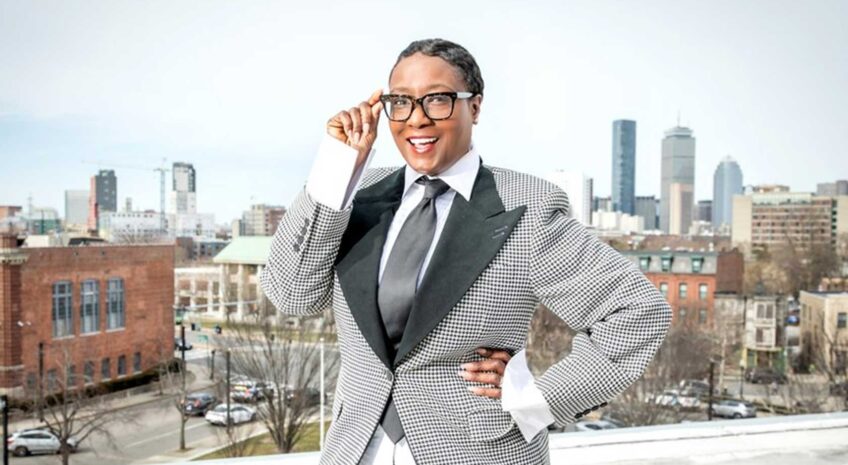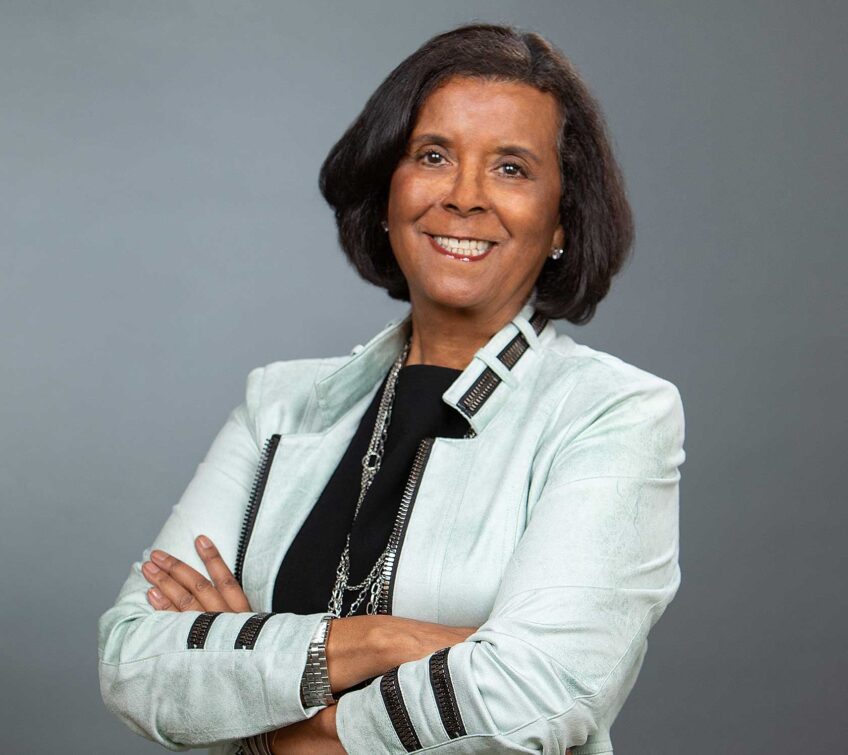
The future of green industry is here — and Roxbury Community College is aiming to help workers access the jobs in the growing sector.
RCC held a ribbon-cutting ceremony to open the Center for Smart Building Technology, a program designed to prepare students for the future of sustainable energy.
“I want us to continue to be on the leading edge of emerging industries,” said RCC President Valerie Roberson, “where we can be a great partner to the business community, and again, that we are preparing people for the jobs of the future.”
RCC recently underwent a massive transformation. Roberson oversaw a $72.5 million campus renovation project, with a $20 million investment in green energy. The school currently has 23 unique energy conservation measures in place.
The new program adheres to many of the City of Boston’s environmental goals, including to achieve carbon neutrality by 2050. Frank Mruk, the executive director of the Center for Smart Building Technology, said that the world is facing a climate crisis.
“Cities are starting 2050-carbon-neutral goals, like this city has,” he said. “And to reach those goals you [have to] focus on energy efficiency, and alternative energy and electricity, and there really isn’t a sustainable workforce to do that sort of thing … this curriculum is almost like a new technology.”
Energy efficiency industries are growing faster than ever before. Cities worldwide are replacing old heating, cooling and lighting systems with more sustainable options. The aim of smart building technology is to reduce the staggering greenhouse gas emissions from U.S. buildings, which account for nearly one-third of total GHG emissions in the United States, according to RCC.
Currently, more than 80% of commercial construction includes some type of smart building technology. Throughout the RCC program, students will learn techniques to adapt to the ever-changing industry. These students can learn the exact employment skills they need to be successful, said Roberson.
“They are learning building management techniques,” she said. “And so it might be the old people that were employed in heating and cooling. But now the industry has advanced, so it might be geothermal energy or solar energy that they’re learning, as buildings start replacing old systems with more high-efficiency energy systems.”
Mike Kennealy, Massachusetts secretary of housing and economic development, said that this program gives students exposure to emerging industries. It makes people aware of these opportunities and gives them the workforce skills they need.
“We help fund programs like this that are exciting workforce training opportunities to help provide great pathways for our young people into exciting industries,” he said. “And this is certainly among those programs.”
Roberson noted that the program sets students up for stable jobs.
“It’s a position that pays a livable wage,” she said. “And so students can finish with an associate’s degree and get as much as $65,000 to start. And for people in this community who sometimes don’t have access to those types of jobs, it’s a great thing for the college to be able to provide that kind of training and opportunities for students.”
Kennealy said that the carbon neutrality goal was an important goal for the environment. He also noted that Massachusetts has the ability to be at the forefront of new industry.
“This is an industry we can lead in,” he said. “And in Massachusetts, if we can stake out leadership positions in exciting growth industries, and then make sure we have the workforce for those industries, that’s really how you have a great economic development strategy, we think.”
Equity, too, will be integral to the center’s purpose.
Mruk noted that the new program’s mission statement ends with “a sense of urgency and environmental equity.” Environmental equity ensures that no community, regardless of location or income level, bears a disproportionate burden of environmental hazards. It also guarantees that communities have an equal say and can contribute meaningful input when addressing the climate crisis.
“Any time that you look at statistics about which communities are going to be most impacted if we aren’t carbon neutral — or if we’re not more conscious about the effects of climate change — it’s going to be centered in low-income communities,” said Roberson. “They’re going to be the hardest hit, most affected by pollutants and those types of things. And for Roxbury Community College, in the midst of this kind of community, to be deliberate in preparing folks that can be a part of the solution is very important.”
City Council President Kim Janey noted that the racial wealth gap in Boston is a quarter-of-a-million dollars, and that many families find themselves with barriers that seem “insurmountable.” She acknowledged the importance of finding new pathways out of poverty.
“This is so important, because we need to be thinking about new pathways of opportunities for folks so we can all enjoy living in our great city of Boston,” she said. “And that there is, in fact, truly shared prosperity and economic opportunities.”
The Center for Smart Building Technology has only just opened, but the excitement at the ceremony was palpable. Kennealy expressed optimism for the future of the program.
“There’s tremendous talent here,” he said. “It’s all about, again, making young people aware of the opportunities and training them. One of our core principles in our economic development plan is equitable opportunity, making sure everyone’s got a chance to be on the playing field.”


![Banner [Virtual] Art Gallery](https://baystatebanner.com/wp-content/uploads/2024/04/Cagen-Luse_Men-at-store-e1713991226112-150x150.jpg)



